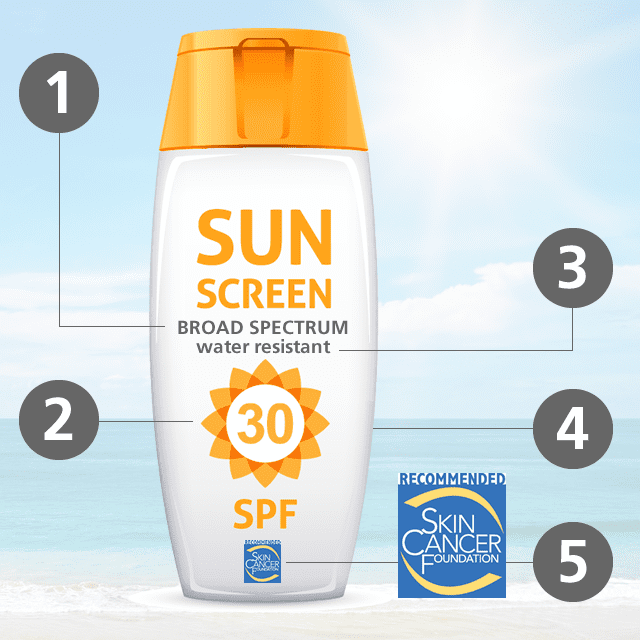Are You Using the Right Sunscreen?
March 31, 2024

Sunscreen Application
Dermatologists recommend a broad-spectrum sunscreen with a minimum SPF of 30, but keep in mind that no sunscreen protects against 100 percent of UV radiation and that reapplication is necessary. “No matter the SPF, sunscreen must be applied adequately and frequently, meaning a quarter-sized amount to cover the face and neck and a full shot glass amount for the body when wearing a bathing suit,” said Walker. “Reapplication should be every 80 minutes.”Why not use a high SPF, such as 70 or 100?
According to the Skin Cancer Foundation, they don’t offer significantly more protection than SPF 30 and mislead people into thinking they have a higher level of protection.
Here’s the breakdown:
- SPF 15 blocks 93 percent of UVB rays
- SPF 30 blocks 97 percent of UVB rays
- SPF 50 blocks 98 percent of UVB rays
- SPF 100 blocks 99 percent of UVB rays

Do specific populations require a higher SPF?
Walker explains that infants, seniors, and those with a history of skin cancer must take precautions against UV radiation, as their skin is vulnerable. Sunscreen should be an absolute priority before spending time outdoors and avoiding prolonged sun exposure, wearing a hat with wide brim (recommended 4-inch brim) and UPF (ultraviolet protection factor) clothing.Due to the sensitive nature of an infant’s skin, babies under six months should not spend time in the direct sun. For infants and toddlers six months and older, whose skin is thinner than adults, a sunscreen that contains zinc oxide or titanium dioxide (physical protectors) should be applied. Zinc and titanium are less likely to irritate because they do not penetrate the skin and instead sit on the surface and deflect UV radiation.
Zinc oxide and titanium dioxide are vital ingredients to seek out in sunscreen due to their strong ability to deflect UV radiation.
Sunscreen Terms Explained
UVA = Long wave ultraviolet light. Penetrates deep into the dermis, the skin’s thickest layer, causing tissue damage that wrinkles and photo-aging and contributes to developing skin cancer.
UVB = Short wave ultraviolet light. The biggest contributor to the development of skin cancer and are more prevalent during mid-day.
SPF = Sun protection factor. Calculated by comparing the amount of time needed to burn sunscreen-protected skin vs. unprotected skin. So, SPF 15 means you can stay in the sun 15 times longer than you could without protection.
What to Look For
- Broad Spectrum Protection
This sunscreen type offers protection against both UVA and UVB rays. - SPF – Sun Protection Factor
The Skin Cancer Foundation recommends always using a broad-spectrum sunscreen with an SPF of 15 or higher. For extended stays outdoors, use SPF 30 or higher. Reapply every two hours. - Water-resistant
An 80-minute water-resistant brand is best. Reapply after water or sweat exposure. - Active Ingredients
Read the back label and look for ingredients that reflect or absorb rays. For example, zinc or titanium dioxide are “actives,” always an excellent choice for sensitive skin. - The Skin Cancer Foundation Seal of Recommendation
Look for this seal which is recognized and trusted worldwide.
